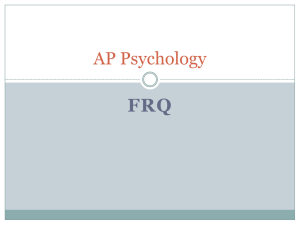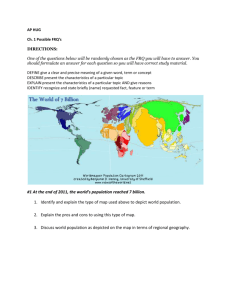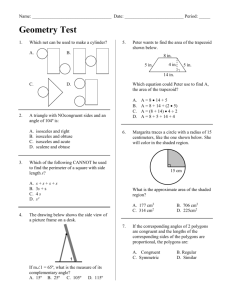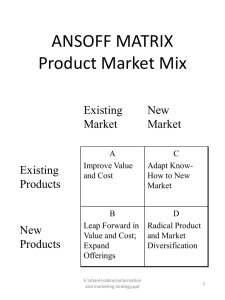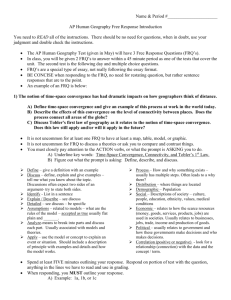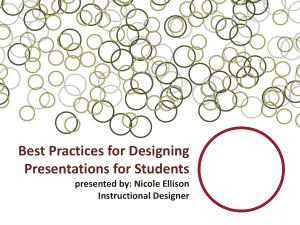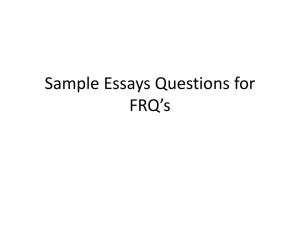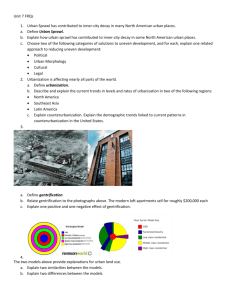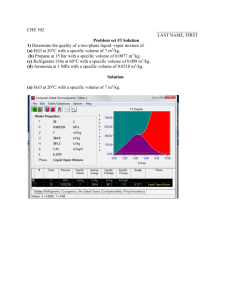Unit 1 Class Itinerary Outline, Basic Concepts, and Vocabulary
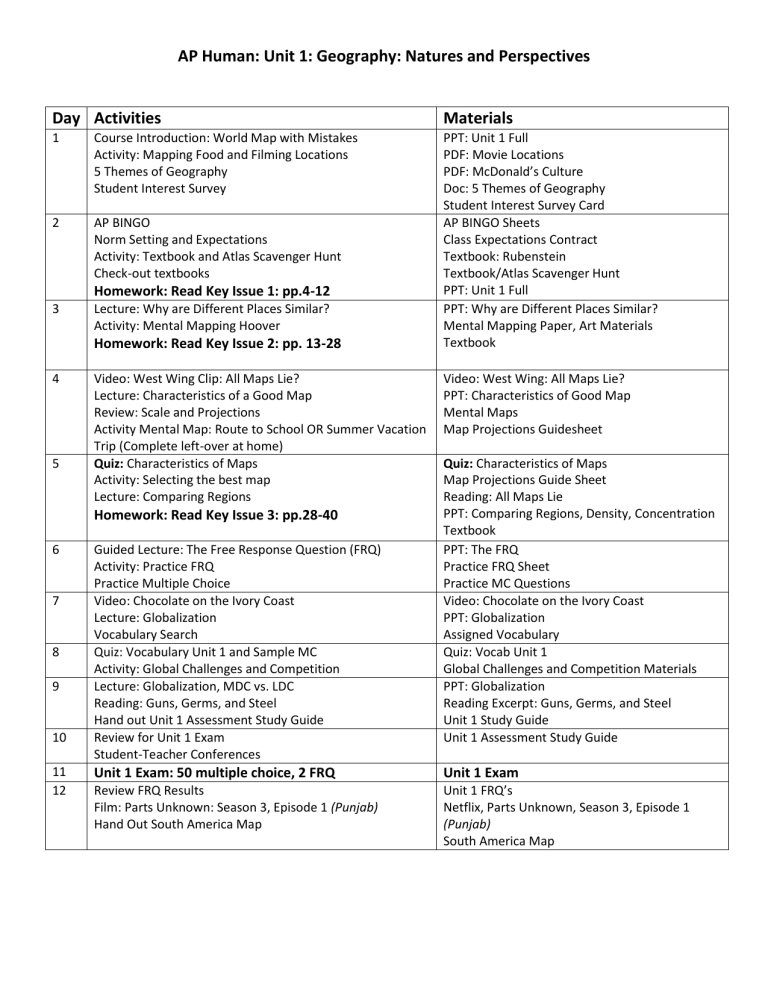
AP Human: Unit 1: Geography: Natures and Perspectives
Day Activities
1 Course Introduction: World Map with Mistakes
Activity: Mapping Food and Filming Locations
5 Themes of Geography
Student Interest Survey
2
3
4
5
AP BINGO
Norm Setting and Expectations
Activity: Textbook and Atlas Scavenger Hunt
Check-out textbooks
Homework: Read Key Issue 1: pp.4-12
Lecture: Why are Different Places Similar?
Activity: Mental Mapping Hoover
Homework: Read Key Issue 2: pp. 13-28
Video: West Wing Clip: All Maps Lie?
Lecture: Characteristics of a Good Map
Review: Scale and Projections
Activity Mental Map: Route to School OR Summer Vacation
Trip (Complete left-over at home)
Quiz: Characteristics of Maps
Activity: Selecting the best map
Lecture: Comparing Regions
6
7
8
9
Homework: Read Key Issue 3: pp.28-40
Guided Lecture: The Free Response Question (FRQ)
Activity: Practice FRQ
Practice Multiple Choice
Video: Chocolate on the Ivory Coast
Lecture: Globalization
Vocabulary Search
Quiz: Vocabulary Unit 1 and Sample MC
Activity: Global Challenges and Competition
Lecture: Globalization, MDC vs. LDC
Reading: Guns, Germs, and Steel
Hand out Unit 1 Assessment Study Guide
10 Review for Unit 1 Exam
Student-Teacher Conferences
11 Unit 1 Exam: 50 multiple choice, 2 FRQ
12 Review FRQ Results
Film: Parts Unknown: Season 3, Episode 1 (Punjab)
Hand Out South America Map
Materials
PPT: Unit 1 Full
PDF: Movie Locations
PDF: McDonald’s Culture
Doc: 5 Themes of Geography
Student Interest Survey Card
AP BINGO Sheets
Class Expectations Contract
Textbook: Rubenstein
Textbook/Atlas Scavenger Hunt
PPT: Unit 1 Full
PPT: Why are Different Places Similar?
Mental Mapping Paper, Art Materials
Textbook
Video: West Wing: All Maps Lie?
PPT: Characteristics of Good Map
Mental Maps
Map Projections Guidesheet
Quiz: Characteristics of Maps
Map Projections Guide Sheet
Reading: All Maps Lie
PPT: Comparing Regions, Density, Concentration
Textbook
PPT: The FRQ
Practice FRQ Sheet
Practice MC Questions
Video: Chocolate on the Ivory Coast
PPT: Globalization
Assigned Vocabulary
Quiz: Vocab Unit 1
Global Challenges and Competition Materials
PPT: Globalization
Reading Excerpt: Guns, Germs, and Steel
Unit 1 Study Guide
Unit 1 Assessment Study Guide
Unit 1 Exam
Unit 1 FRQ’s
Netflix, Parts Unknown, Season 3, Episode 1
(Punjab)
South America Map
Unit 1: Basic Concepts and Vocabulary
Changing attributes of place (built landscape, sequent occupance)
Cultural attributes (cultural landscape)
Density (arithmetic, physiological)
Diffusion (hearth, relocation, expansion, hierarchical, contagious, stimulus)
Direction (absolute, relative)
Dispersion/concentration (dispersed/scattered, clustered/agglomerated)
Distance (absolute, relative)
Distribution
Environmental determinism
Location (absolute, relative, site, situation, place name)
Pattern (linear, centralized, random)
Physical attributes (natural landscape)
Possibilism
Region (formal/uniform, functional/nodal, perceptual/vernacular)
Scale (implied degree of generalization)
Size
Spatial (of or pertaining to space on or near Earth’s surface)
Spatial interaction (accessibility, connectivity, network, distance decay, friction of distance, time-space compression)
Geographic Tools
Distortion
Geographic Information System (GIS)
Global Positioning System (GPS)
Grid (North and South Poles, latitude, parallel, equator, longitude, meridian, prime meridian, international date line)
Map (Maps are the tool most uniquely identified with geography; the ability to use and interpret maps is an essential geographic skill.)
Map scale (distance on a map relative to distance on Earth)
Map types (thematic, statistical, cartogram, dot, choropleth, isoline)
Mental map
Model (a simplified abstraction of reality, structured to clarify causal relationships):
Projection
Remote sensing
Time zones

